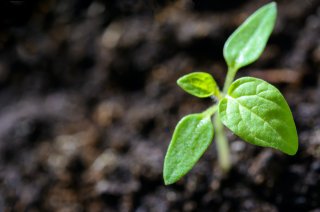
category_news
CBD meetings (including on DSI) to be held in March
Various previously postponed meetings in the framework of the Convention on Biological Diversity (CBD) and the Nagoya Protocol will now be held from 14-29 March in Geneva, Switzerland. These meetings will include discussions on how to deal with access to and benefit-sharing from the use of digital sequence information (DSI).
The meetings were originally scheduled for 2021 but were postponed to 2022, because physical meetings were not possible due to the COVID-19 pandemic and negotiations could not take place online. The meetings will now be held from 14-29 March in Geneva, Switzerland. More information can be found on the website of the CBD. The results of the Geneva meetings will feed into the Fifteenth meeting of the Conference of the Parties to the CBD (COP-15), which, after a formal virtual opening in October 2021, will now probably take place in the third quarter of 2022.
The Geneva meetings will include the resumed session of the Third Meeting of the Open-ended Working Group on the Post-2020 Global Biodiversity Framework (OEWG-3), in which further discussions will take place on how to deal with access to and benefit-sharing from the use of digital sequence information (DSI). For more information, see the previous articles Policy options for Access and Benefit-Sharing (ABS) and Digital Sequence Information and Progress on Digital Sequence Information (DSI).
In preparation for the DSI discussions during OEWG-3, areas of potential convergence and apparent divergence of opinions on how to deal with DSI have been identified. A multi-criteria framework is proposed to assess the different policy options, with the criteria focusing on effectiveness, efficiency, good governance and coherence. A new option (‘1 per cent levy on retail sales of genetic resources’), proposed by the African Union, has been added to the policy options identified earlier. In summary, the following policy options are currently under consideration, also keeping open the possibility to combine various options (e.g. Option 4 with another option).
- Option 0: Status Quo.
- Option 1: DSI on genetic resources fully integrated into domestic ABS measures.
Option 2: Standard mutually agreed terms (MAT).
- 2.1: Standard MAT/licence at the national level.
- 2.2: Standard MAT/licence at the international level.
Option 3: No prior informed consent (PIC), no mutually agreed terms (MAT).
- 3.1: Payment for access to DSI on genetic resources.
- 3.2: Other payments and contribution.
- Option 4: Enhanced technical and scientific capacity and cooperation.
- Option 5: No benefit-sharing from digital sequence information on genetic resources.
- Option 6: 1 per cent levy on retail sales of genetic resources.
More information on what will be discussed on DSI during the Geneva meetings can be found in this meeting document, with its annex I describing the policy options, and its annex II and III the possible criteria and subcriteria to assess these options. Much information on the DSI discussion is provided in the webinars organised by the CBD Secretariat in 2020 and 2021.
As indicated before, the Dutch ABS Competent National Authority (Ms Kim van Seeters; k.vanseeters@minlnv.nl) is interested in hearing the experiences of Dutch stakeholders with DSI and their opinions on the proposed DSI policy options.
